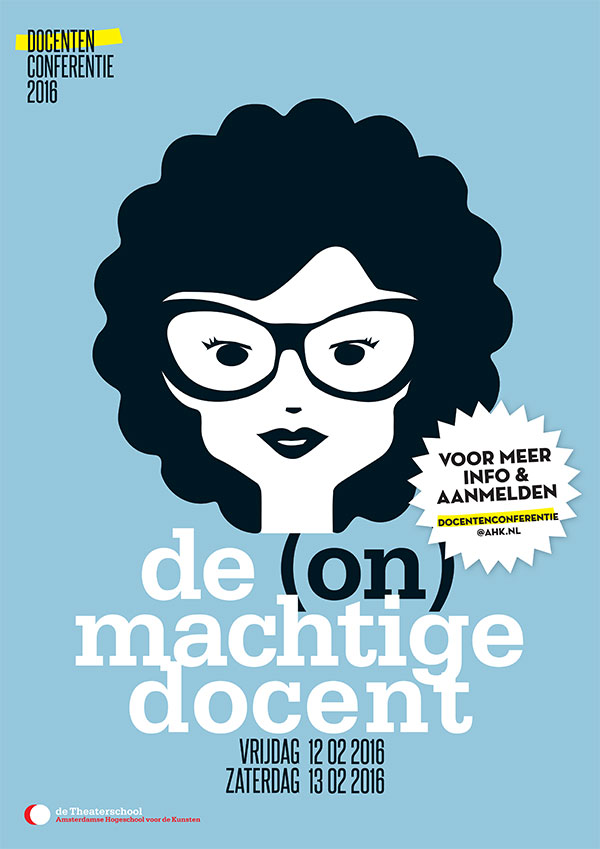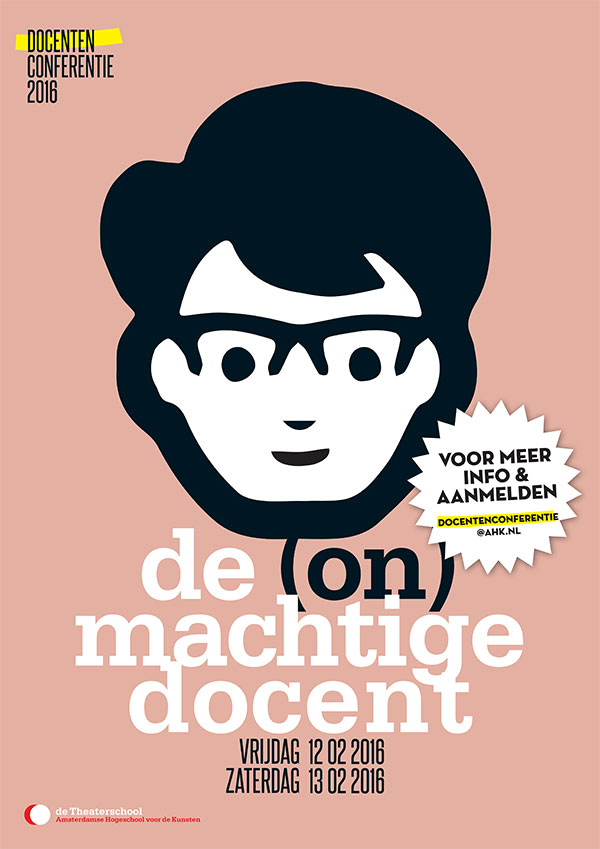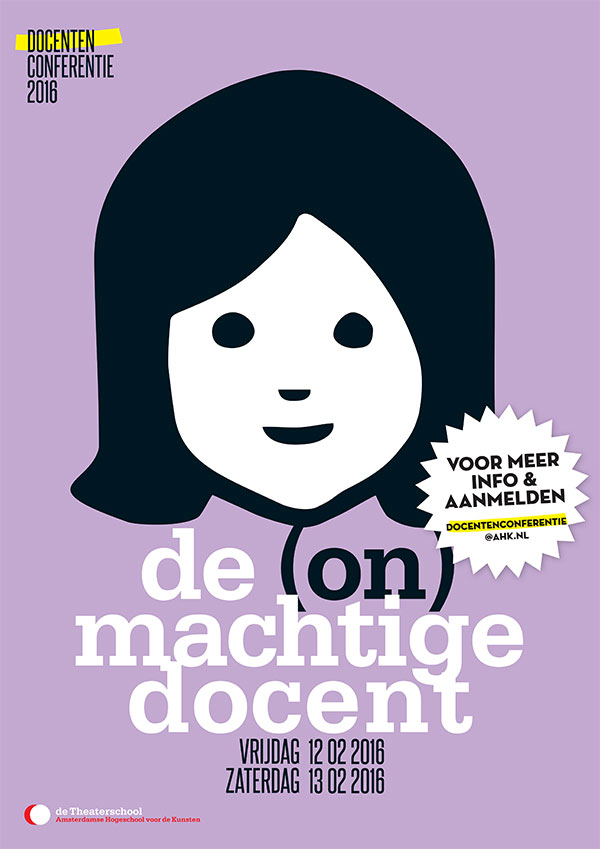The school’s management has organised the conference to get teaching staff at de Theaterschool more involved and to give them an opportunity to get to know one another. One of the nine editorial staff preparing the conference is Puck Mathot, a teacher and project coordinator for three departments: Technical Theatre Arts (OTT), Production and Stage Management (OPP) and Scenography She is also a guest tutor at the HKU University of the Arts Utrecht. Puck has responsibility for the pre-production of the conference, working alongside Zeynep Gunduz, who teaches at the Modern Theatre Dance department and the National Ballet Academy. “Although we’ve already got a few small-scale platforms for exchange, there’s no overarching meeting yet,” she explains. “So the upcoming conference will be the first time all the teachers – and no one else – will be invited to come and meet up. The title of the conference is ‘The teacher: powerful or powerless?’
Puck explains the thinking behind the title: “Teaching staff here sometimes feel powerless. They’re often artists themselves, and here they’re being asked to be part of a larger whole that they’re not really familiar with, and they don’t immediately feel themselves to be teachers. Often, what they really want is to feel there’s an appeal to their professionalism as artists, but as teachers they’re more frequently faced with assessments and didactics. How should they go about dealing with this situation? How should they find out what’s important for the programme they’re working on or where they should go to sort things out? However, teachers are also powerful, because they know all about professional practice, and they’ve often got huge networks; they know what does and doesn’t work within that network. They also get lots of freedom to put together their own lessons and they often have a major influence on students’ futures. To sum up: they’re important; they make the school.”
Speak up
The organisers hope that all the teachers will attend the conference to share their experiences and feelings of power and powerlessness, and that this will provide inspiration and stimulation to help teachers define a role for themselves in the organisation. Since this is the conference’s first edition, it’s been decided that it will mainly consist of the teachers themselves raising the subjects for discussion. What’s on their minds, what do they need? The main idea is to get a conversation going among the teachers. This will bring up matters that can be further explored later. So, in line with this thought, the conference will be split into two sections. Starting at 16.30 on the Friday the teachers will be encouraged to speak up about what’s on their mind. On the Saturday, the discussions will go into greater depth on the most important matters from the previous evening – and there will also be expert-led workshops set up by the conference editorial team.
Conference programme
All Theaterschool teachers and guest teachers are invited to attend the conference. It will be held in Dutch, but non-Dutch speakers are welcome to participate in English. Puck: “We’re hoping that at least 100 of the invited teachers will participate, but of course we’d prefer if even more came along!” Puck is excited about the programme: “On Friday, after a word of welcome from Jan Zoet, we’ll get started with a playful introduction. Then we’ll sit down for a meal and some food for thought, with one of the conference editors reading out an opinion piece during each of the four courses. That will be followed by an inspirational story from keynote speaker Hanke Drop, a senior researcher at the HKU, and a roundtable discussion that everyone can join in with. At the end of the evening, we’ll distil out some of the subject matter and everyone will be invited to register for the next day’s sessions.”
Saturday will be a packed day of workshops and discussion groups. “So there’ll be something for everyone,” explains Puck, “You’re welcome to take what you want from the workshops, and to contribute what you want to the discussions.” The workshops will be wide-ranging: they include a lecture about the shifting position of the artist in society and an introduction to practical skills such as deep democracy. As mentioned, the subjects for the discussion groups will only be framed on Friday. This means that the external discussion leaders we have brought in won’t know what to expect. But what we do know for sure is the conference’s ultimate goal: to get the teachers together to decide if and how they want to shape shared discussions in the future.
Teacher conference editorial team
Juul Beeren (DasArts)
Fien Bloemen (Faculty secretary and policy officer)
Zeynep Gündüz (MTD and NBA)
Puck Mathot (OPP, OTT, Scenography)
Anouk Rutten (Theatre teacher)
Frances Sanders (ATKA and Theatre teacher)
Danielle Schilling (Scenography)
Thomas Spijkerman (ATKA)
John Taylor (MTD)



